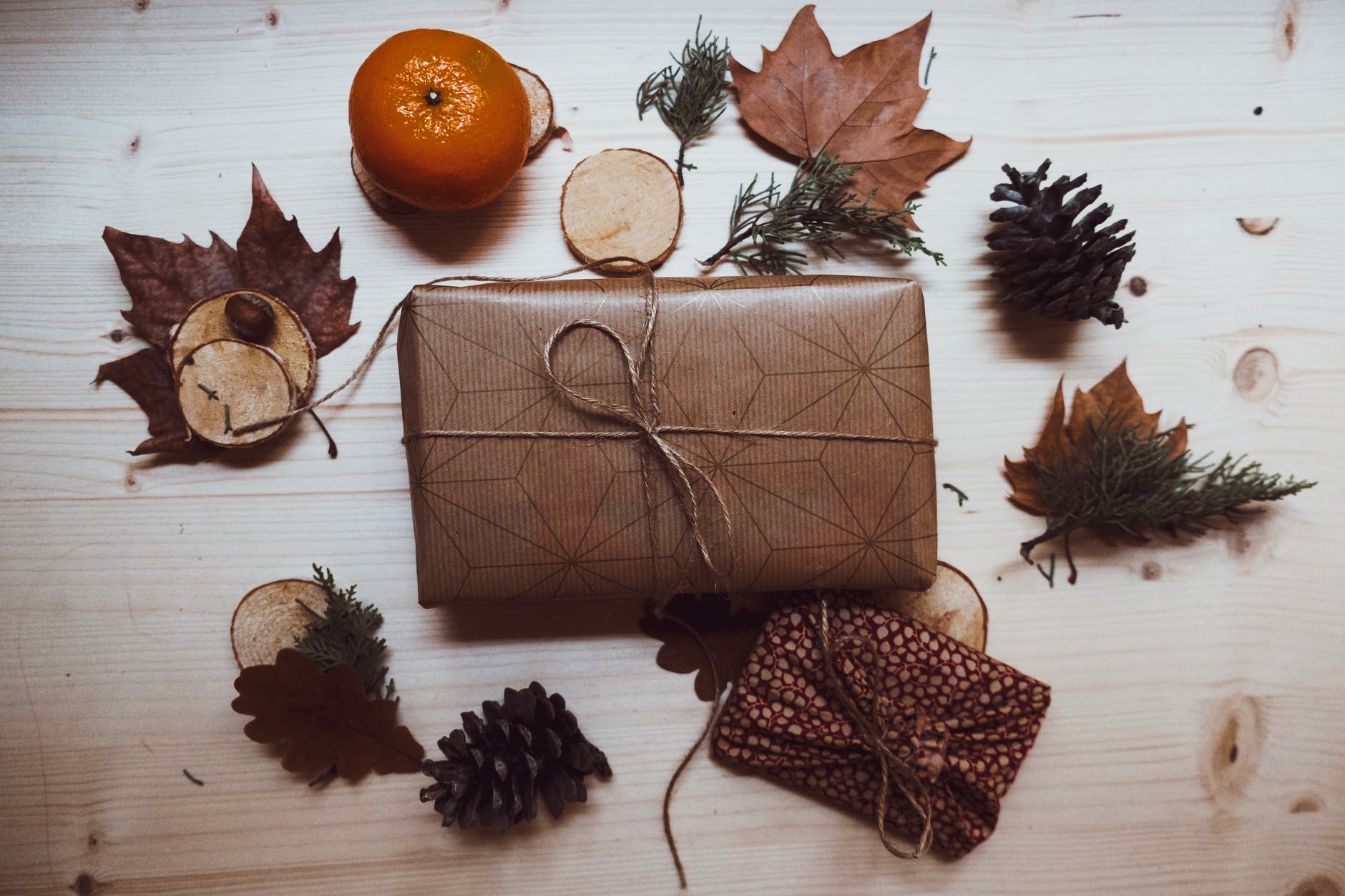“Who was it?” I asked.
“I don’t know,” she said. “I don’t know if I ever knew.”
A ceramic Christmas tree sat on my bookshelf. I’d just switched it on, and its multi-colored lights glowed. That little tree had been part of Christmastime as far back into my childhood as I could remember. It wasn’t until this evening on the phone with my mother, though, that I felt a sudden need to know where it came from. She said that someone gave it to my father to bring home to me.
“Really, it could have been anybody,” she added. “You know how proud he was of you. He’d talk about you to anybody who’d listen.”
I knew that, and I’d have given anything to hear his voice again. Those were the first holidays without my father. I finally knew what people meant when they said that grieving is harder at the holidays. All year I’d been finding things I wanted to ask my father or tell him, and then I’d realize all over again that I couldn’t. It felt like having the wind knocked out of me each time. It still seemed impossible that he could be gone. I hadn’t adjusted to his smile not greeting me when I arrived for a visit. I hadn’t adjusted to him not being there to say, “It will be okay.” I hadn’t adjusted at all.
Granted, most of us hadn’t adjusted to one thing or another that year. My father died not long before the pandemic began. By that holiday season, so many of us grieved the loss of so, so much. I’d started putting up Christmas decorations earlier than ever, simply craving the comfort of cheerful surroundings. I hadn’t expected the intensity of memories, though, or the deepened sense of loss that those decorations would bring. After putting out a few pieces, like the ceramic Christmas tree, I pushed the decoration boxes back into the closet. It seemed that no amount of digging in Christmas decoration boxes could turn up the comfort I needed.
I remembered how, in the later years of his life, my father had gotten into the habit of calling me to plan my mother’s Christmas gift. With neither enough mobility to drive nor enough focus to shop online, he’d wait until my mother had gone to the store and then call me. We’d talk through what she might like, when I’d bring it, where I’d leave it, how I’d slip him a card to sign. He might not remember the details, but that didn’t matter. The call was what mattered. Even as he lost the ability to take care of people as he once did, his call meant that we could work on some of that caring together.

The odd thing was, that first holiday without him, I found myself having our conversations anyway.
“What do you think?” I’d ask out loud, almost without thinking, as I searched online for gift ideas for my mother. I had no trouble imagining how my father would have responded had he been on the phone.
“Do you think she’d use it?” He’d have asked. “Don’t worry about the cost. If you think it’s something she’d like, then find a nice one.”
I could almost hear his emphasis on that final phrase “nice one.” He knew how frugal I was, and I knew he would never choose a frugal option for my mother.
The people we love stay with us in so many ways, don’t they? Perhaps it seemed so impossible that my father could be gone because of all the ways that it felt like he wasn’t. Life still echoed his care. I’d been noticing this for a while, but it struck me as somehow appropriate that I should become aware of it during Advent.
Advent is, after all, a season of waiting upon God’s love, a love revealed (Christians say) in Jesus. The thing is, I believe that love has been with us all along and suspect this season of waiting has less to do with waiting for love to arrive than with waiting to see that love revealed in new ways. And, if human love is part of the bigger picture of God’s love, what if my missing of my father’s love was part of that waiting, part of that waiting to see in a new way?
Pandemic days, for sure, had been all about doing and seeing things in new ways. Though working remotely most of that first pandemic year, I still went to the school where I worked sometimes to check mail. One December evening, I walked the school halls that any other year would have held Christmas trees. I passed a common room where a fireplace would have blazed beside a table where we’d have set out plates of cookies to share. Seeing these empty spaces, I blinked back tears and kept on with my errands, putting packages into staff mailboxes, unlocking an office door, and walking back to my desk.
I stopped, surprised. Gifts and cards covered my desktop. A book with a friend’s note inside, a box of fruitcake and preserves, a card notifying employees of a Christmas bonus – it went on and on.

“See? It will be okay,” I could almost hear my father saying.
In a way I couldn’t explain, I felt as if love had just drawn near. Perhaps I thought of how my father had introduced me to the kind of love that cares generously and persistently. Perhaps I had the sense that my father had shared with me a love that was his but that was also much larger than his alone. Perhaps I felt that same kind of love flowing through all these coworkers and their care, too. All I knew was that I sat down and cried.
“Thank you,” I said to the empty room. It felt anything but empty.
When I returned home that evening, I returned to the decoration boxes, bringing them back out of the closet. I spent a little time with those boxes each evening that week, decorating a bit more here and there. At the bottom of one box, I found a random collection of cards. I read through them, smiling at messages and names. One wasn’t even a card, at all. It was an envelope with my father’s wide, uneven handwriting scrawled across the front. He’d let my mother handle writing most cards over the years, but if he wanted to slip me a little extra holiday money, he’d use these plain envelopes. I must have taken the money out years ago, but written in red and green Sharpie markers, my father’s message on the front of the envelope still read:
“Merry Christmas, Callie.”
“Merry Christmas, Dad,” I said, smiling and crying at the same time. “I love you.”

Beautiful. Yes Callie the holidays bring grief to a new demension. It brought you into a deeper love relationship with your father and God. In our pain God becomes closer as we see Him in a new spirit. May this Christmas be filled with the gift of Christ.
LikeLike
Carol, I like your description of it as “a new dimension” – yes! I keep glimpsing more things it can mean to say that love never ends. Every blessing to you and yours this Christmas!
LikeLike
Blessings to you also. Christmas brings us the gift of salvation in a baby child born to give us hope.
LikeLiked by 1 person
Dear Callie, I know all too well what you are talking about in this post on so many levels. I have also come across correspondence after my parents’ deaths that brings a smile to my face, though. Blessings as you–and all of us–continue to process grief.
LikeLike
Deb, I’m so glad you got to come across that correspondence! Smiles are definitely part of grieving, as well. Blessings to you, also, and to all of us in this process.
LikeLike
Dear Callie, It is now the season of Epiphany and I am finally getting around to reading your Advent offering. As you know, David, my husband of what would have been 52 years this Christmas, also died right before the pandemic. That first Christmas without him didn’t seem so bad. Perhaps my expectations of “bad” were too high. Anyway, this Christmas was very different in many ways but the most profound is that I am missing him so much more now, than in the previous year. Grief never goes away but it sure does change with the passing time.
I appreciate your writing very much and found this one really meaningful. Thank you.
I am extremely grateful that we ended up in the same church supper group. I have loved getting to know you.
Peace,
Kaye
LikeLike
Kaye, I appreciate so much what you say about grief changing with the passing of time. I wouldn’t have expected how different one year could feel from the next. May a new peace be with you in this new year. And I’m grateful, too, for the chance to get to know you!
LikeLike